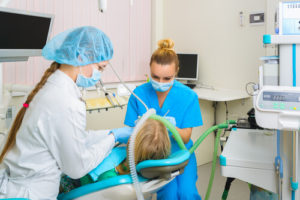Many patients have such anxiety that they completely avoid dental treatment which may lead to loss of teeth if the tooth problems are left untreated. The clinic of Piazza Dental in Epping, NSW mentions that there are different forms of sedation like general anesthesia or light sedation that can help patients suffering from anxiety to successfully pay a visit to their dentist.
A well-qualified sedation dentist should offer different options to the patients. The level of sedation should be tailored to meet the needs of the patient. In order to have the intended state of relaxation, experienced sedation and cosmetic dentists often offer different dental methods.
Oral drugs like diazepam should be administered to the patient 30 minutes to an hour before the dental procedure or even the night prior to the procedure, it may depend on the patient’s needs and the level of anxiety.
Nitrous oxide sedation method involves the inhalation of the nitrous oxide gas, that induces a state of relaxation.
Intravenous (IV) sedation is administered through a syringe to the patient’s vein and induces relaxation but without the patient feeling any pain.

Another method of sedation dentistry is the use of general anesthesia. Intravenous and nitrous oxide sedation are commonly used in order to achieve the state of light and conscious sedation while general anesthesia may be used to induce unconsciousness. This method may be different from others that the patient doesn’t require any local anesthetic for pain relief because he or she will be completely unconscious. The use of general anesthesia is preferred when the dental surgery is going to be difficult and extended and when the patient is extremely anxious.
By offering a variety of sedation methods and different degrees of sedation, patients may no longer suffer consequences of neglected oral health due to fear and anxiety.
